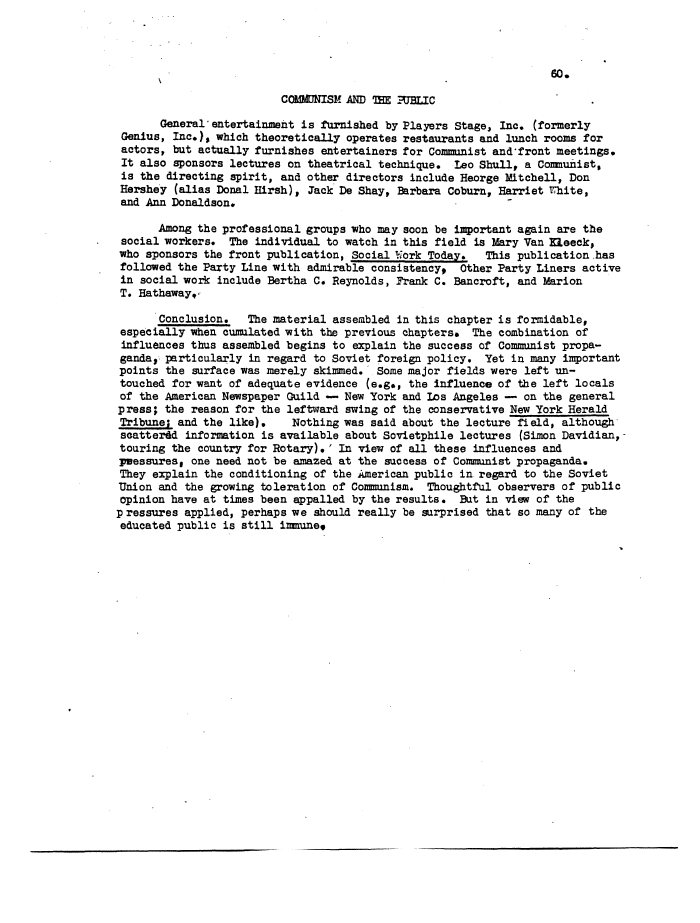 |
||||
 |
||||
| CQMMCNISM AND 1HE HJBLIC General' entertainment is furnished by Players Stage, Inc. (formerly Genius, Inc.), which theoretically operates restaurants and lunch rooms for actors, but actually furnishes entertainers for Communist and'front meetings. It also sponsors lectures on theatrical technique. Leo Shull, a Communist, is the directing spirit, and other directors include Heorge Mitchell, Don Hershey (alias Donal Hirsh), Jack De Shay, Barbara Coburn, Harriet White, and Ann Donald son* Among the professional groups who may soon be important again are the social workers. The individual to watch in this field is Mary Van Kleeck, who sponsors the front publication, Social Work Today. This publication .has followed the Party Line with admirable consistency^ Other Party Liners active in social work include Bertha C. Reynolds, Prank C, Bancroft, and Marion T. Hathawayf • C on elusion. The material assembled in this chapter is formidable, especially when cumulated with the previous chapters* The combination of influences thus assembled begins to explain the success of Communist propa- ganda, particularly in regard to Soviet foreign policy. Yet in many important points the surface was merely skimmed. Some major fields were left un- touched for want of adequate evidence (e.g., the influence of the left locals of the American Newspaper Guild — New York and Los Angeles — on the general press; the reason for the leftward swing of the conservative New York Herald Tribune; and the like). Nothing was said about the lecture field, although scattered information is available about Sovietphile lectures (Simon Davidian, touring the country for Rotary). ' In view of all these influences and peessures, one need not be amazed at the success of Communist propaganda. They explain the conditioning of the American public in regard to the Soviet Union and the growing toleration of Communism. Thoughtful observers of public opinion have at times been appalled by the results. But in view of the p ressures applied, perhaps we should really be surprised that so many of the educated public is still immunet |